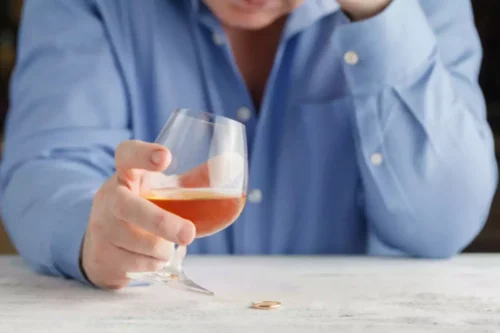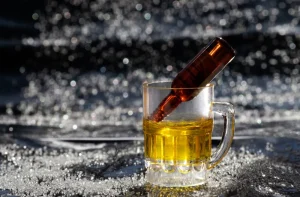
Drinking is individualized and there’s no universal rule for how to do it safely when you live with diabetes. Talk to your doctor about your drinking habits and they can provide you with tips and tricks for how drink in a way that works for you. Because many of the symptoms of hypoglycemia—such as slurred speech, drowsiness, confusion, or difficulty walking—are also symptoms of being drunk, it can be difficult to tell the two apart. And if you often have hypoglycemia unawareness, a condition in which you don’t recognize you’re going low, drinking becomes especially dicey. Timing may also be an issue, as hypoglycemia can strike hours after your last drink, especially if you’ve been exercising. If your glucose drops to less than 70 milligrams per deciliter (mg/dL), you’ll need to down 15 grams of fast-acting carbohydrates.
Alcohol and Diabetes: Can Alcohol Use Cause Diabetes?
If you do drink these with alcohol, your blood sugar may spike and then dip to dangerously low levels. Low carb beer is a better option than regular beer for people with diabetes who want to enjoy a cold brew now and then. That said, when it comes to alcohol, people with blood sugar problems should always remain cautious. One study found that women who drink moderately have a lower risk of developing type 2 diabetes than women who do not drink.
What is Diabetes?
Alcohol can also interact with some medications that are prescribed to people with diabetes. Even if you only rarely drink alcohol, talk with your healthcare provider about it so that he or she knows which medications are best for you. Diabetic eye disease (i.e., retinopathy) is another troublesome tissue complication of diabetes and one of the leading causes of blindness in the United States today. Good blood sugar and blood pressure control as well as regular eye examinations are essential for the prevention of retinopathy. Heavy alcohol consumption may increase a person’s risk for developing this disease. Interestingly, the risk of retinopathy was independent of the men’s ability to control their blood sugar, suggesting that alcohol may directly damage the eyes or related structures.
Are there benefits to drinking alcohol with diabetes?

Furthermore, continued alcohol metabolism results in diminished gluconeogenesis. Both the depletion of glycogen and diminished gluconeogenesis lead to lower blood sugar levels. Because insulin restrains glucagon secretion, lower insulin secretion allows increased glucagon secretion, setting the stage for the development of ketoacidosis. Vomiting can lead to dehydration diabetes and alcohol and a reduced blood volume, which, in turn, increases the levels of certain stress hormones in the blood called catecholamines. Catecholamines further decrease insulin production and increase glucagon production. Accordingly, physicians who treat diabetics known to consume large amounts of alcohol must be aware of the risk of alcoholic ketoacidosis in those patients.
Why are women supposed to drink less?
As a result of the immune system’s attack, the beta cells can no longer produce insulin. Consequently, the patient essentially experiences total insulin lack. Because insulin is a key metabolic hormone, insulin deficiency leads to major impairment of the body’s regulation of carbohydrate, lipid, and protein metabolism. Alcohol consumption can exacerbate the diabetes-related lipid abnormalities, because numerous studies have shown that heavy drinking can alter lipid levels even in nondiabetics.
If a person chooses to drink, they should always eat at the same time and include carbohydrates, such as fruits, vegetables, or grains, in their meal. Typically beers, lagers, wines, sherries and liqueurs will have this effect. However, alcohol inhibits the liver from turning proteins into glucose which means you’re at a greater risk of hypoglycemia once your blood sugars start to come down. If you have a number of these drinks, you can expect to see a rise in blood sugar followed by a steady drop a number of hours later, often whilst asleep. People who take insulin, in particular, therefore need to be wary of hypoglycemia. In addition, insulin inhibits the production of more sugar molecules (i.e., gluconeogenesis) in the liver.
Alcohol’s Effects on Complications of Diabetes
- As a result, your blood sugar level can drop quickly, putting you at risk for low blood sugar (hypoglycemia).
- Doctors advise some people with diabetes to abstain from alcohol for reasons unrelated to their blood sugar.
- The Department of Veterans Affairs (DVA) warns that individuals with diabetes may have other conditions that alcohol could affect.
- The liver often makes this choice when you drink without eating food—so consider snacking while you sip.
- For example, a 5-ounce (150-mL) serving of extra-dry champagne provides 1.7–2.5 grams of carbs.
With 4.6 grams of carbs per 12-ounce (360-mL) serving, it provides roughly 50% fewer carbs than a regular Budweiser (11, 12). Bud Lite is another low carb beer that provides fewer than 5 grams of carbs per serving. In contrast, standard options, such as Coors Banquet, provide almost 12 grams of carbs per bottle (10).

It addresses some of the risks as well as some of the benefits of drinking alcohol when you have type 2 diabetes. It also provides guidelines for how to safely include alcohol in a type 2 diabetes https://ecosoberhouse.com/ diet (if you so choose). In fact, some evidence shows that many people with type 2 diabetes can safely enjoy drinking alcoholic beverages, and it may even bring about some benefits.
